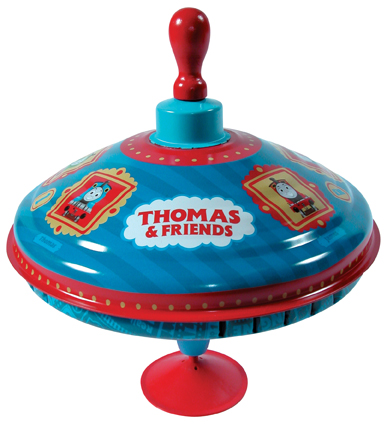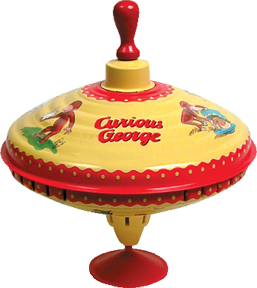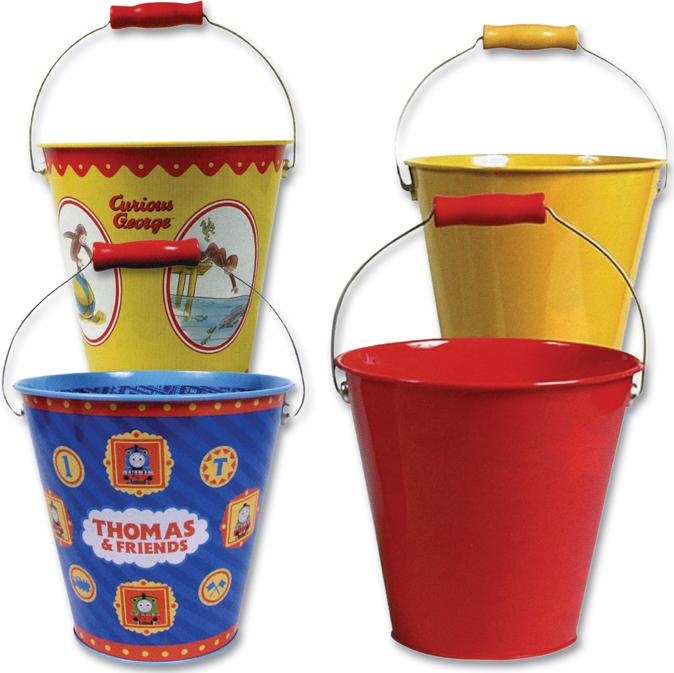The U.S. Consumer Product Safety Commission (CPSC) announced today that Schylling Associates Inc., of Rowley, Mass. has agreed to pay a $200,000 civil penalty.
The penalty settlement (pdf), which has been provisionally accepted by the Commission, resolves staff allegations that the company violated the federal lead paint ban regarding toys with surface paints containing lead above the 600 parts per million (ppm) legal limit applicable at the time, and failed to immediately report to CPSC information about the non-compliant toys.
In 1978, a federal ban was established that prohibited toys and other children’s articles from having more than 600 ppm (by weight) in paints or surface coatings. The regulatory limit was reduced to 90 ppm on August 14, 2009, as a result of the Consumer Product Safety Improvement Act of 2008.
The settlement resolves the following allegations:
- Schylling imported up to 66,000 units of non-compliant spinning top toys with Thomas and Friends, Curious George and Circus graphics between June 2001 and June 2002, and distributed them to its retail business customers for sale to consumers.
- Schylling imported as many as 10,200 units of non-compliant tin pail toys with Thomas and Friends, Curious George and Primary Colors graphics from late January 2002 through March 2002, and distributed about 4,700 of them to its retail customers for sale to consumers.
- Schylling also imported as many as 3,600 units of non-compliant Winnie-the-Pooh style spinning top toys between April and May 2003, and distributed them to its retail customers for sale to consumers.
- Although it eventually reported about these toys to CPSC in 2007, Schylling knew or should have known by 2002 that most of the toys did not comply with the lead paint ban, and it failed to report this information to the government in a timely manner.
Instead of notifying CPSC immediately, in 2002 Schylling conducted a unilateral recall of the distributed pails by seeking their return from affected retail business customers.
Within weeks of being notified of each of these violations in 2007, CPSC announced the firm’s voluntary recall of the products first in August and for additional toys in November of that year.
“Manufacturers, importers, distributors and retailers have a legal obligation to ensure that no banned products are introduced into or distributed in the U.S. marketplace, and to inform CPSC as soon as they become aware of information that must be reported under our laws. We will continue to penalize companies that do not follow these basic requirements,” said CPSC Chairman, Inez Tenenbaum.
In agreeing to the settlement, Schylling denies that it violated federal law, as alleged by CPSC staff.





About the U.S. CPSC
The U.S. Consumer Product Safety Commission (CPSC) is charged with protecting the public from unreasonable risk of injury associated with the use of thousands of types of consumer products. Deaths, injuries, and property damage from consumer product-related incidents cost the nation more than $1 trillion annually. Since the CPSC was established more than 50 years ago, it has worked to ensure the safety of consumer products, which has contributed to a decline in injuries associated with these products.
Federal law prohibits any person from selling products subject to a Commission ordered recall or a voluntary recall undertaken in consultation with the CPSC.
For lifesaving information:
- Visit CPSC.gov.
- Sign up to receive our email alerts.
- Follow us on Facebook, Instagram, X, BlueSky, Threads, LinkedIn and Truth Social.
- Report a dangerous product or a product-related injury on www.SaferProducts.gov.
- Call CPSC’s Hotline at 800-638-2772 (TTY 800-638-8270).
- Contact a media specialist.
Please use the below phone number for all media requests.
Phone: (301) 504-7908
Spanish: (301) 504-7800

